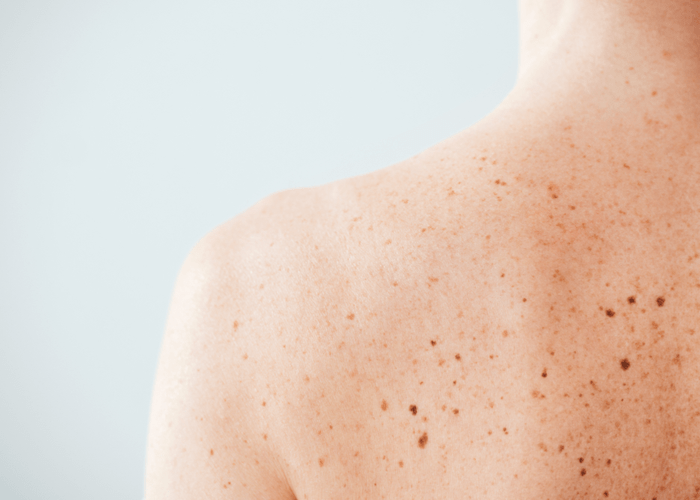
Australia’s climate and bright sunshine means many people spend their time outside. The downside to this is melanoma, affecting nearly 17,000 Australians every year.
Melanoma occurs when abnormal cells in the skin grow in an uncontrolled way, often by UV exposure to the sun. This month we hear from Cure Cancer researcher Dr Jessica Duarte about her developments in battling this disease and why research and funding is necessary.
An Unexpected Discovery
It’s never easy to hear that you might have cancer when you visit the doctor’s office. For Dr Jessica Duarte, this was her experience when she saw her GP and dermatologist many years ago.
‘They identified highly suspicious moles on two separate occasions and were convinced it was melanoma. Luckily, after resection they turned out not to be,’ she says. ‘Those few days of waiting for results were a whirlwind of emotions, and although I got good news in the end, it dawned on me that most people in Australia don’t share my luck. That’s when my dedication to improve melanoma awareness, screening, diagnostics and therapeutics became truly personal.’
As a melanoma researcher at the Olivia Newton-John Cancer Research Institute , Jessica comes face to face with patients daily. ‘Cancer doesn’t discriminate, and melanoma affects people of all ages. When I meet patients and their families, I’m inspired by their stories and they provide me with daily motivation to keep doing what I do.’
‘I have always been determined to make a difference where it’s needed most, and dedicating my career to cancer research is one of the ways I chose to contribute to the benefit of others.’
Making Progress
Born in South Africa and raised in Portugal, Jessica completed her PhD at the University of Cape Town in 2015, having first obtained a degree in Biochemistry. During her doctoral studies, she developed the technology she uses in her current work.
Jessica’s work has seen her develop a novel technology that may be used to identify diagnostic, prognostic, and therapeutic monitoring cancer biomarkers. ‘My research goals include investigating the translational uses of this technology in a clinical setting. If found, I hope to introduce these into routine clinical practice to ensure widespread access across the community for improved diagnostics and personalised therapeutic planning for melanoma patients. This will lead to improved patient outcomes and survival.’
She explains, ‘We group patients according to how their immune system reacts to treatment which prevents many from undergoing unnecessary immunotherapies with the risk of severe-side effects. This personalised medicine approach will enable these patients to undertake other therapies that may be beneficial, and prevent further tumour development. This leads to improved treatment outcomes and survival rates, thereby reducing health care costs and the burden of disease on society. Given the widespread use of immunotherapy in other cancers, these benefits may be transferable to other tumour types.’
The Need For Funding
Discovering brilliant, ground-breaking ideas in the lab that could lead to a cure is every cancer researcher’s dream, but the lack of funding is often an obstacle that gets thrown in the way. As Jessica says, ‘It is extremely difficult to obtain funding as an early career cancer researcher.
After completing a PhD, you are given the monumental task of establishing a career path to become an independent successful researcher. This can only happen if you can secure early-career funding, and the list of competitive achievements needed to do so can be overwhelming. Many young researchers fail to do so and as a result, leave science at times.’
‘I am so thankful to Cure Cancer for being successful in securing PdCCRS (Priority-driven Collaborative Cancer Research Scheme) funding. It has truly launched my scientific career and helped me investigate if my technology can predict therapeutic outcomes while allowing me to become an independent and successful researcher.’
Please consider making a donation today to support innovative research like Jessica’s and help Cure Cancer in their mission to make this the last generation to die from cancer.
Resource:
Cancer Australia